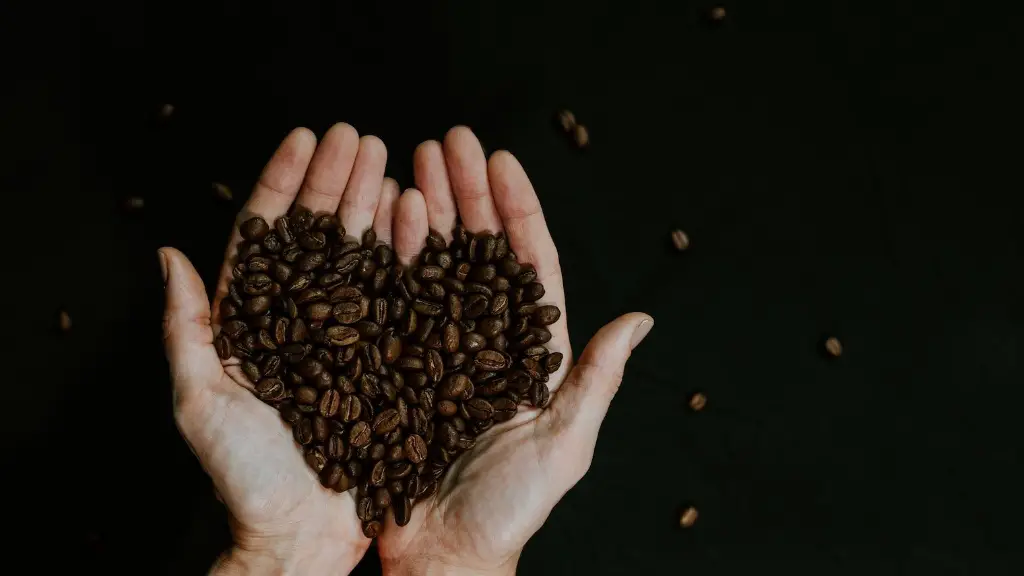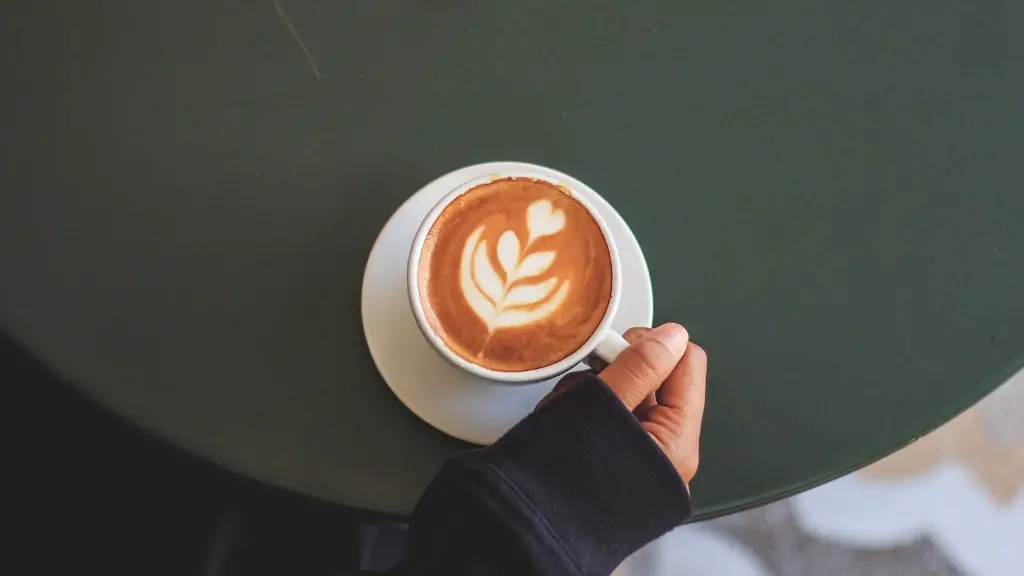Negative Consequences of Drinking Coffee in the Evening
Coffee is a beloved beverage, enjoyed by many with each cup offering taste and energy. But while it might be a morning pick-me-up, many are now drinking coffee at night, not realizing the potential effects it can have on sleep and overall wellbeing.
Whether or not you decide to drink coffee at night is up to you, but it is important to take into account the potential consequences and risks associated with this practice. Experts suggest that drinking coffee in the evening could have a number of negative effects, including increased levels of stress, inability to fall asleep, restless sleep, and overall poor quality of sleep.
Caffeine, the primary ingredient in coffee, is a stimulant that acts on the central nervous system to keep people awake and alert. It can take several hours for the effects of caffeine to leave the body, which is why drinking coffee at anytime close to bedtime can hinder a person’s ability to fall asleep. For those who cannot fall asleep without coffee, it suggests that your body has become dependent on it and this can be a difficult pattern to break.
Additionally, caffeine can increase levels of cortisol, which is commonly known as the “stress hormone”. Cortisol regulates appetite and energy usage and higher levels can lead to feelings of stress, restlessness, and irritability. The effects can be especially pronounced when drinking coffee in the evening, since it can act as a stimulant to keep you awake.
Furthermore, the acidity of coffee can cause digestive problems such as indigestion, heartburn, and stomach aches for some people. These kinds of problems can occur whether someone is drinking coffee at night or during the day, but can be more pronounced when drinking just before bed as the drink has more time to settle in the stomach.
Even if someone is able to fall asleep after drinking coffee in the evening, there is still a risk of reduced sleep quality. Studies have shown that caffeine can impact REM sleep, which often affects a person’s ability to dream and can even lead to nightmares. Additionally, drinking coffee close to bedtime can increase the amount of time it takes to fall into a deep sleep and reduce the number of hours of sleep overall.
Benefits of Drinking Coffee in the Evening
While experts are largely against the idea of drinking coffee in the evening, there are some potential benefits to consider. Depending on the individual, drinking coffee in the evening can help to improve alertness and focus for the night, helping people to stay productive and get more done. Caffeine can also improve memory and the amount of information a person can recall.
However, it is important to be mindful of how much coffee you are drinking and to limit it to one cup within a few hours of bedtime. For people who are more sensitive to caffeine’s effects, a cup of coffee can still disrupt sleep even if it is consumed hours before bedtime. Drinking coffee later in the evening can also leave enough time for the caffeine to be metabolized before going to bed.
Additionally, coffee can be a great way to enhance social activities and create social connections. Going out with friends for coffee can be a great way to relax and unwind after a long day, and can help people to destress.
Alternative Drinks Instead of Coffee
Some people prefer to drink something other than coffee when they’re out in the evening. Here are some alternatives that may provide similar benefits without the potential health risks associated with coffee.
Herbal teas are a great alternative to coffee, as they contain none of the stimulants like caffeine that can disrupt sleep. They can provide a calming, soothing effect and come in various flavors to suit different tastes. Additionally, some herbal teas may offer additional health benefits.
Milk and juice are another non-caffeinated alternatives to coffee that can help to relax together in the evening. Some people may prefer hot milk as it is a great soothing drink, while non-dairy options such as almond, oat, or soy milk are also good substitutes for people looking for something slightly lighter.
Another great option is sparkling water. It can be as flavorful and versatile as many other drinks and still provide a refreshing and bubbly experience. Moreover, it is lower in sugar and calories than other alternatives and comes in a variety of flavors.
The Impact of Drinking Coffee at Night On Mental Health
Studies have suggested that drinking coffee in the evening can have a negative effect on mental health. Caffeine is a known stimulant and acts as an appetite suppressant, which can impair nutritional intake and lead to nutritional deficiencies. This can in turn affect a person’s mood and increase anxiety levels.
Drinking coffee in the evening can also lead to an irregular caffeine-induced cycle, which can make it difficult to get a good night’s sleep. Lack of sleep can not only lead to fatigue and difficulty focusing, but it is also linked to depression, anxiety, and other mental health issues.
Caffeine addiction is another potential issue associated with drinking coffee in the evening and can further impact sleep quality. Studies have shown that constant caffeine intake can cause chemical changes in the brain that make it difficult to go a whole night without coffee. Furthermore, dependence on caffeine can lead to withdrawal symptoms, such as headaches and irritability, when attempting to quit.
Tips for Successfully Drinking Coffee at Night
It is possible to have coffee in the evening in a healthy and safe way, as long as it is consumed in moderation. Follow these tips to ensure that you are getting the most out of your coffee while avoiding the potential risks.
First and foremost, practice moderation by limiting your caffeine intake and reducing the amount of coffee you drink to one cup in the evening, at least four hours before going to bed.
If you are looking for a more calming, soothing beverage, opt for herbal teas that are non-caffeinated and have naturally occurring anxiety-reducing ingredients.
If you want to stick with coffee, switch to decaffeinated coffee, which has all of the flavor without the caffeine. Alternatively, you can find coffee blends that are low in caffeine, with most containing less than 1 mg per 8 oz. cup.
Finally, stick to organic blends as they reduce the risk of synthetic and chemical additives that can have a negative impact on your health.
Potential Interactions of Coffee With Sleep Medications
Some people may prefer to take sleep medications either in combination with or instead of coffee. However, it is important to note that caffeine can interact with certain sleep medications and delay or decrease the effects of the drug. This can cause frustration and confusion for those taking sleep medications, as the drug may not be working as expected.
Caffeine and sleep medications can interact in different ways, depending on the drug. Some drugs, such as benzodiazepines, are metabolized by the liver and caffeine can speed up this process. This can reduce the effects of the drug, leading to insomnia and restlessness. Furthermore, caffeine can delay the effects of some drugs, making it impossible to get the desired results.
Understanding the Individual Effects of Coffee
Instead of focusing on the potential risks and benefits of drinking coffee in the evening, understanding the individual effects of caffeine is key to smart decision making. Researchers suggest that sensitivity to caffeine can vary greatly and can be affected by a number of different environmental and genetic factors.
The most important thing to consider is how coffee affects your body, as this will give you the best insight into whether or not its smart to drink coffee in the evening. It might take some time and trial and error to come to a decision, but it is best to pay attention to the body’s own response to the drink and make a choice based on individual experience.
Importance of Hydration when Drinking Coffee at Night
For people who decide to drink coffee at night, it’s important to stay hydrated. Caffeine is a diuretic and can lead to dehydration, so it is important to make sure to balance out the amount of coffee with an adequate amount of water. Drinking enough water not only prevents dehydration but can also reduce cravings for coffee that can occur later in the evening.
Aim to drink at least 8 glasses of water a day to ensure that your body is hydrated and functioning properly. Additionally, keep in mind that other caffeinated beverages like tea and soda can also have diuretic effects, so make sure to stay hydrated if having those as well.
Adopting Healthy Habits To Avoid Coffee Dependence
It is important to be mindful of the potential risks associated with drinking coffee in the evening. If caffeine dependence is an issue, then setting healthy habits before bed can help reduce the chances of reaching for another cup of coffee at the end of the day.
Try to avoid screens, such as phones and computers, shortly before bed, since the blue light emitted from these can trick the brain into thinking it’s daytime. Additionally, make sure to keep your bedroom dark and cool and opt for relaxing activities that can help signal to the body that it is time for bed.
Writing in a journal or gratitude list can be a great way to release anxious or stressful thoughts and relax the body before going to sleep. Additionally, add calming elements such as scented candles, plants, and essential oils that can help create a calming environment.
Conclusion
Drinking coffee in the evening can have serious consequences, which should be taken into account before making the decision to drink coffee at night or not. Understand the impact that coffee has on your body, as it may vary greatly from person to person. Furthermore, try out alternative beverages and make sure to stay hydrated if you do decide to have coffee. Finally, by taking the time to relax before bed and practicing healthy habits, you can minimize the potential risks associated with drinking coffee at night.


